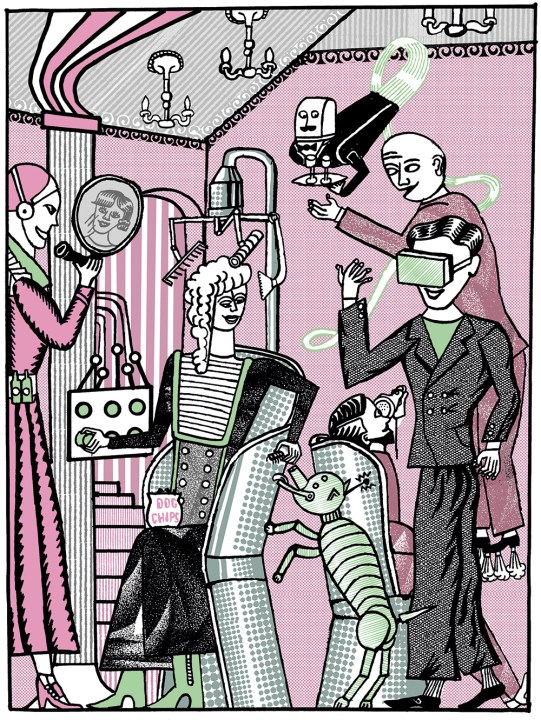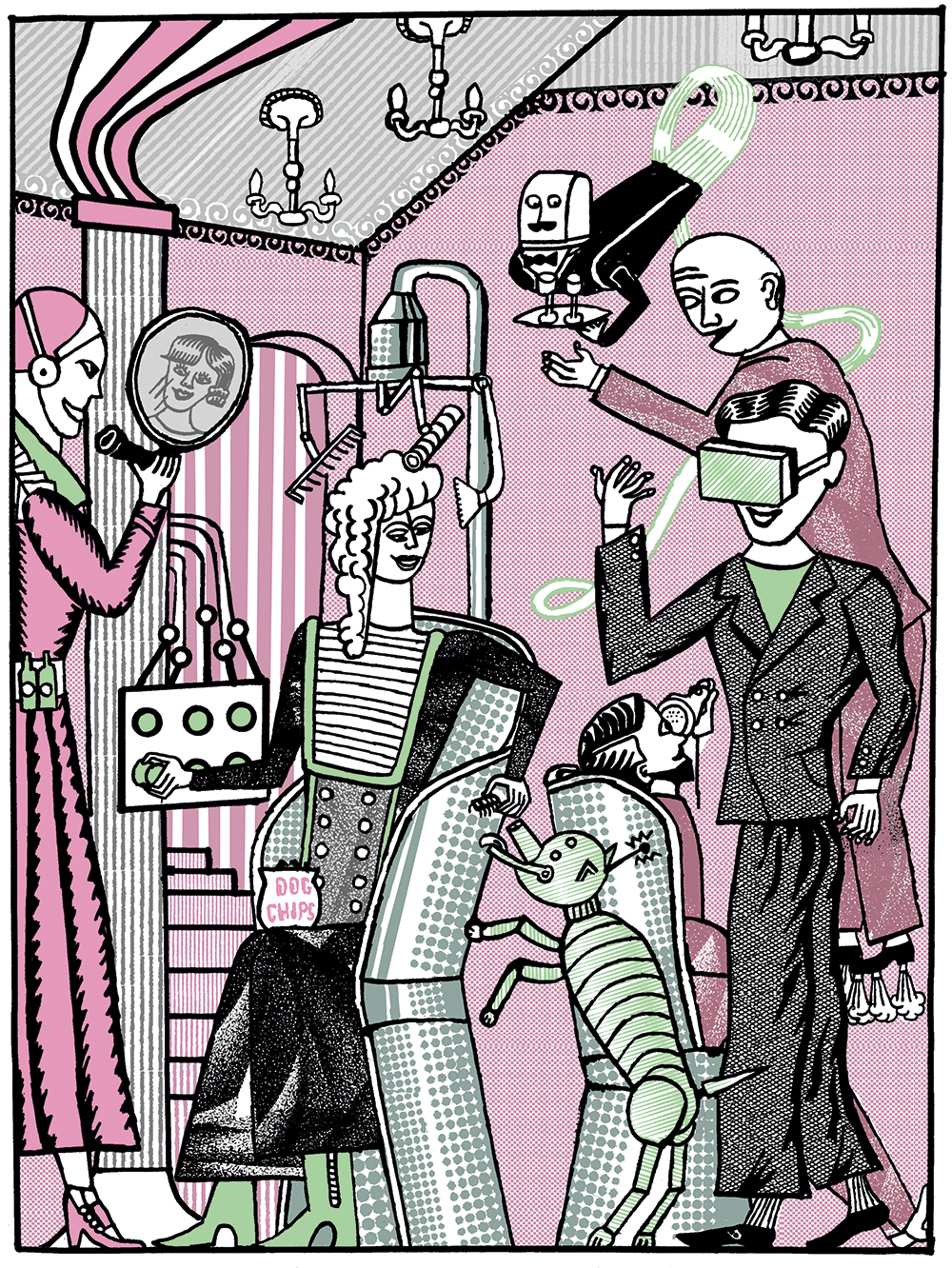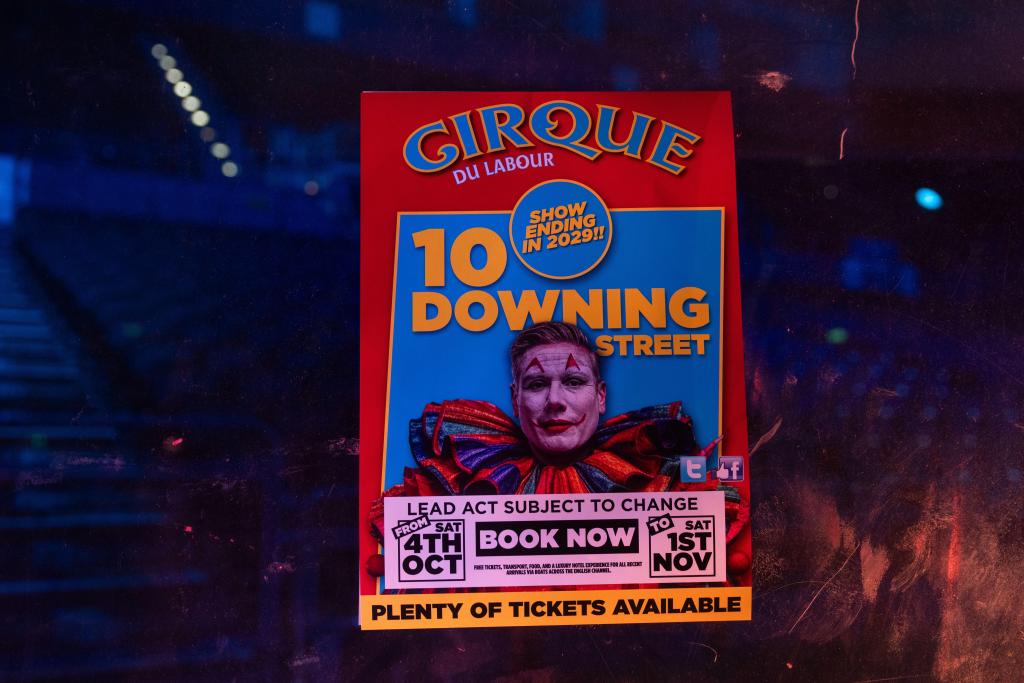Future House is a weird private members’ club. There’s a mattress on the floor for napping, a bathtub designed to hold ice and bottled beers, a robot dog imported from China and a purple neon sign that reads: ‘Just F***ing Build Something.’ Around 9 p.m. on a Wednesday, the place is rammed. ‘I missed the dotcom era, I’m not missing this one,’ someone says. ‘People need to stop moaning about artificial intelligence,’ says another.
Future House, in an old coaching house in Hackney, is described on its website as ‘London’s techno-optimist members’ club’. Techno-optimism? Adherents believe that technological progress is the best way to fix the world’s problems. Techno-optimism is one of a set of new ideologies, fashionable among Britain’s recent graduates and twentysomethings, about how to better civilisation.
William MacAskill, a philosopher at the University of Oxford, came up with ‘effective altruism’, the first of these ‘New Solutions’. The basic idea is that charity should be focused on saving the maximum number of lives. Rather than giving £20 to one homeless man to sleep in a hostel in London for a night, spend the same money feeding a family in Africa for a week. In 2009, MacAskill started Giving What We Can, an organisation that encouraged people to donate 10 per cent of their income to ‘effective charities’.
Adherents believe that technological progress will fix the world’s problems
MacAskill worked alongside other left-field academics at the Future of Humanity Institute, a small and strange Oxford department located on the outskirts of the city. ‘It was ground zero for effective altruism,’ says Anders Sandberg, who also worked there. ‘It was open 24 hours,’ says a former Oxford PhD student. ‘There were places to sleep. Free food. Very well stocked fridges. Lots of protein bars.’
MacAskill seemed to run the show – along with Swedish philosopher Nick Bostrom, founder of the institute. MacAskill’s obsession with efficient distribution of resources was pervasive. ‘Sometimes on a whiteboard in the kitchen there were debates about the most efficient allocation of protein bars,’ says the PhD student. Impressionable students turned up at events and parties. MacAskill advised David Cameron’s No. 10 and wrote books reviewed by Stephen Fry. ‘There was a cult of personality around MacAskill and Bostrom,’ says the student.
MacAskill tried to take effective altruism to the US around 2012. He would lecture students from Ivy League universities about a concept called ‘earn to give’. It was an extension of the original effective altruist principles: smart young people could do the most good in the world by getting extremely well-paid jobs as bankers, and then giving all their compensation away. You save more lives by funding the training of 100 doctors than by becoming a doctor yourself.
MacAskill convinced Sam Bankman-Fried, a Stanford graduate, to earn to give. Sam joined the bank Jane Street Capital (a Wall Street giant, with profits last year of $7.4 billion), and then founded a shady crypto-currency exchange called FTX that made him the richest 29-year-old on the planet. ‘He just wants his wealth to survive long enough to give it all away,’ read a Forbes piece in 2021. A year later, wary customers started a run on FTX, but they couldn’t withdraw their cash. Billions of dollars were missing. Bankman-Fried was arrested and charged with seven different financial crimes, and this year he was sentenced to 25 years in jail. He hadn’t saved lives, and had wrecked his own.
MacAskill is still at Oxford researching ‘moral uncertainty’, and there remain followers of his gospel at start-ups and universities in Britain and America. But the FTX episode made space for the other New Solutions. Last year Marc Andreessen, a billionaire investor, released his ‘Techno-Optimist Manifesto’, 5,000 words on how ‘societies, like sharks, grow or die’. In 2022, entrepreneur Guillaume Verdon came up with ‘effective accelerationism’, its central idea being that all technological development is good and necessary. After Sam’s arrest, Verdon was invited on to Lex Fridman’s popular tech podcast. Forbes wrote a piece about him.
Effective altruism, techno-optimism and effective accelerationism are popular partly because, like most ideologies, they promise followers they can change the world. But they also appeal to a usually ignored demographic of awkward, bookish kids, and present society in a way that suits their geeky minds: the world is a problem, and we need to solve it. A few years ago, New Solution types would have become drones at Goldman Sachs; now they’re coders at AI companies solving the ‘challenges of our time’. They have influence and are philosophising about what to do with it.
The communities have fallen out with each other. In 2016, Ed Saperia founded Newspeak House, an east London club for the tech-obsessed that now hosts events for effective altruists, effective accelerationists and techno-optimists. Saperia claims he’s not part of any of the movements. ‘We invite them here to observe them,’ he says. Still, Saperia is a bit like MacAskill. Above the club is a flat, where each year around ten ‘fellows’ of Saperia’s London College of Political Technology live. There’s no real curriculum, but it apparently involves Saperia telling the fellows that they must come up with a system of governance for the flat. ‘You live with no boundaries,’ says a former student, ‘but then randomly get told, you can’t do that, you must do that.’
Joe Reeve, the 27-year-old who started Future House, used to be a fellow at Saperia’s college. He says it was too left-wing: ‘Three of the founding members of Future House are faculty from Newspeak House who became frustrated. I’d come down from my bedroom and there would be an Extinction Rebellion meeting next to the kitchen. And then I’d walk to the living room and there’d be some random Labour campaign group doing videos about why they think the UK should nationalise Google.’ He says the Newspeak House WhatsApp group is ‘dominated by bullies’. Saperia says that he and Reeve are good friends.
Earlier this year, OpenAI, the company that created ChatGPT, had a purge of effective altruist employees. Sam Altman, the CEO, apparently identifies as an effective accelerationist, and found the altruists too risk-averse. ‘Future House and Newspeak House, you might think them rivals, right? But it’s the same people at both,’ says the PhD student. Geeks, giddy with power.
Watch more like this on SpectatorTV:








Comments